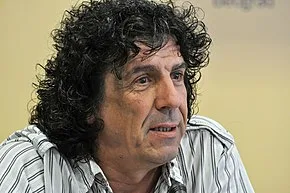
Age, Biography and Wiki
Dragoljub Đuričić was born on 10 February, 1953 in Cetinje, PR Montenegro, FPR Yugoslavia, is a musician. Discover Dragoljub Đuričić’s Biography, Age, Height, Physical Stats, Dating/Affairs, Family and career updates. Learn How rich is He in this year and how He spends money? Also learn how He earned most of networth at the age of 68 years old?
| Popular As | N/A |
| Occupation | Musician, composer |
| Age | 68 years old |
| Zodiac Sign | Aquarius |
| Born | 10 February, 1953 |
| Birthday | 10 February |
| Birthplace | Cetinje, PR Montenegro, FPR Yugoslavia |
| Date of death | (2021-03-15) |
| Died Place | Belgrade, Serbia |
| Nationality | Montenegro |
We recommend you to check the complete list of Famous People born on 10 February.
He is a member of famous musician with the age 68 years old group.
Dragoljub Đuričić Height, Weight & Measurements
At 68 years old, Dragoljub Đuričić height not available right now. We will update Dragoljub Đuričić’s Height, weight, Body Measurements, Eye Color, Hair Color, Shoe & Dress size soon as possible.
| Physical Status | |
|---|---|
| Height | Not Available |
| Weight | Not Available |
| Body Measurements | Not Available |
| Eye Color | Not Available |
| Hair Color | Not Available |
Dating & Relationship status
He is currently single. He is not dating anyone. We don’t have much information about He’s past relationship and any previous engaged. According to our Database, He has no children.
| Family | |
|---|---|
| Parents | Not Available |
| Wife | Not Available |
| Sibling | Not Available |
| Children | Not Available |
Dragoljub Đuričić Net Worth
His net worth has been growing significantly in 2022-2023. So, how much is Dragoljub Đuričić worth at the age of 68 years old? Dragoljub Đuričić’s income source is mostly from being a successful musician. He is from Montenegro. We have estimated
Dragoljub Đuričić’s net worth
, money, salary, income, and assets.
| Net Worth in 2023 | $1 Million – $5 Million |
| Salary in 2023 | Under Review |
| Net Worth in 2022 | Pending |
| Salary in 2022 | Under Review |
| House | Not Available |
| Cars | Not Available |
| Source of Income | musician |
Dragoljub Đuričić Social Network
| Wikipedia | |
| Imdb |
